CSPO News
-
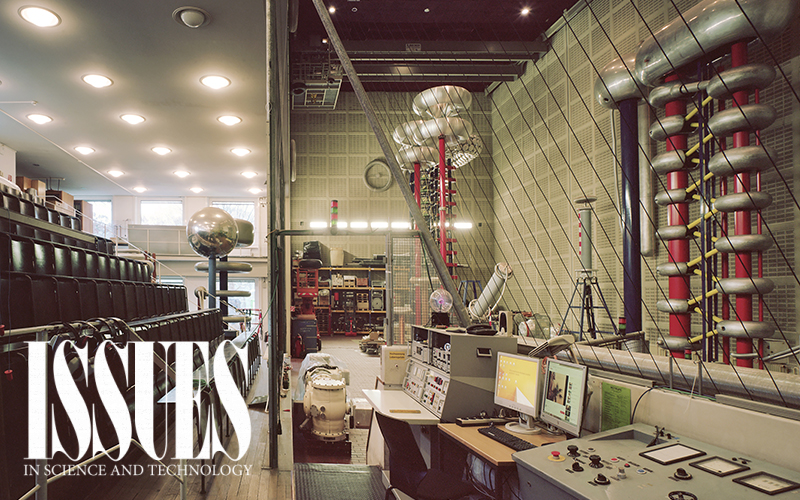
Summer 2019 Issues in Science and Technology
The empty radicalism of the climate apocalypse, protecting the accuracy of the 2020 Census, artificial intelligence for a social world, and much more.
The policies proposed by climate activists and progressive politicians to combat global warming are not nearly as radical—or potentially effective—as claimed. What would it mean to get serious about addressing climate change?
-

A Bright Start to Our Driverless Futures
Bringing citizen perspectives into decisions and policies about driverless mobility.
To provide a platform for citizens to engage with decision makers about driverless vehicles, CSPO and its partners have launched an unprecedented program of global citizen consultation.
-
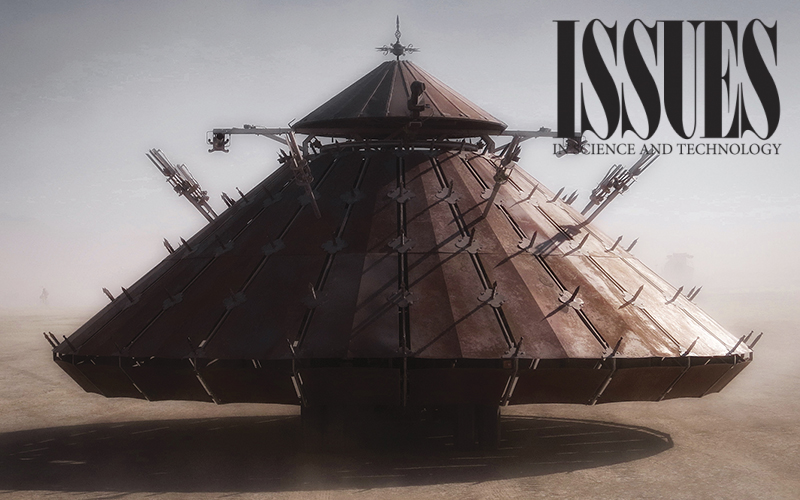
Spring 2019 Issues in Science and Technology
Human gene editing, plus UFO sightings, smart manufacturing, autonomous vehicles, and much more.
For the Spring 2019 edition of Issues, leading thinkers in the field of genomics comment on where we are in the process of understanding and managing the use of the precision gene-editing tool CRISPR on humans.
-

Workshop Launches Unprecedented Citizen Consultation on Autonomous Mobility
CSPO and its partners announce an ambitious new project to engage citizens on a future of driverless vehicles.
To provide a platform for citizens to engage with decision makers on vital questions around autonomous mobility, the Consortium for Science, Policy & Outcomes and the Paris-based Missions Publiques have launched an unprecedented program of citizen consultation. This global project on the development and adoption of autonomous mobility will provide informed, deliberative, diverse, and useful public perspectives to a variety of key stakeholders.
-
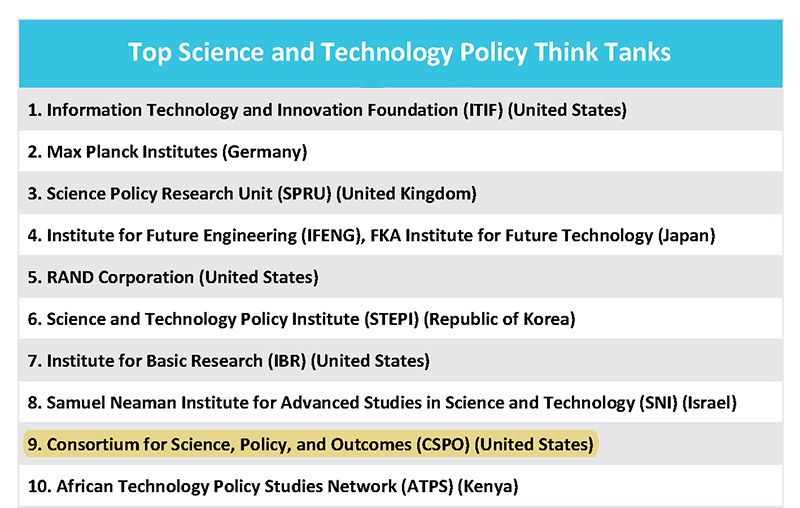
CSPO Ranked One of the World’s Top Think Tanks for Science and Tech Policy
Once again, CSPO is recognized as a global thought and practice leader in science and technology policy.
For the fifth consecutive year, the Consortium for Science, Policy & Outcomes has been ranked in the top ten of global science and technology think tanks.
-
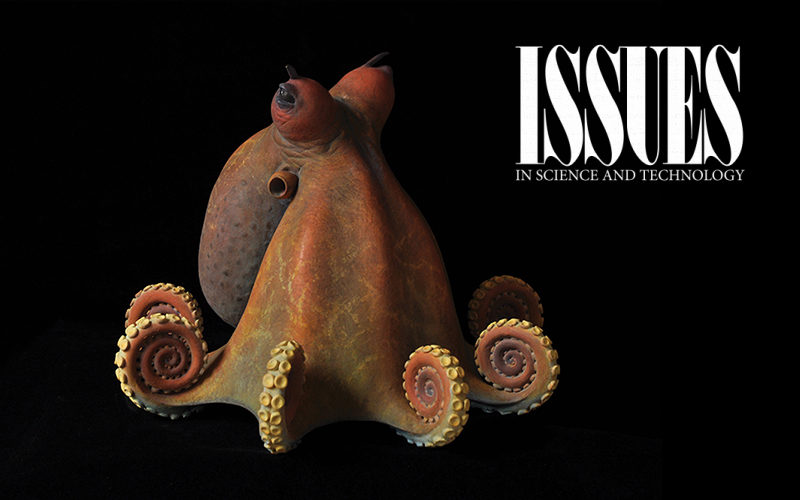
Winter 2019 Issues in Science and Technology
Higher education re-imagined, plus nuclear weapons testing, octopus farming, space mining, and much more.
A special section of essays in the Winter 2019 Issues in Science and Technology draws from five studies recently released by the National Academies of Sciences, Engineering, and Medicine, along with essays from the presidents of several innovative universities, to present an array of practical policy solutions to well-recognized weaknesses in the STEM education enterprise.
-

Fall 2018 Issues in Science and Technology
What effect will technological advances have on the nature of work? A special section in the new issue helps to make sense of how work is changing.
Advances in artificial intelligence, robotics, and other technologies have produced anxiety about the future of work. The picture is so uncertain that cases can be made for a future shortage of skilled workers, a shortage of high-quality jobs, or a decline in the need to work at all. A special section in the latest Issues explores the future of work.
-

Fall 2018 Update
Check out the new events, publications, and website we've been working on over the summer.
The Consortium for Science, Policy & Outcomes has had a very busy summer. Here are some of the exciting things we’ve been working on.
-
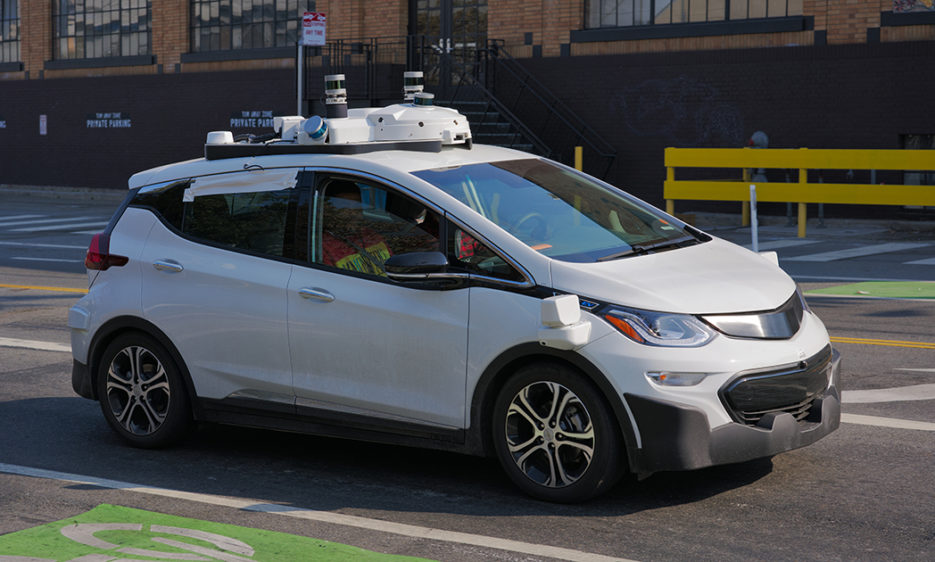
What Priorities Should Citizens Consider as Driverless Vehicles Become a Reality?
A new discussion guide brings communities together to discuss a consequential and potentially transformative emerging technology: autonomous vehicles.
The Consortium for Science, Policy & Outcomes has partnered with the Kettering Foundation to produce the first-of-its-kind deliberation guide for autonomous vehicles.